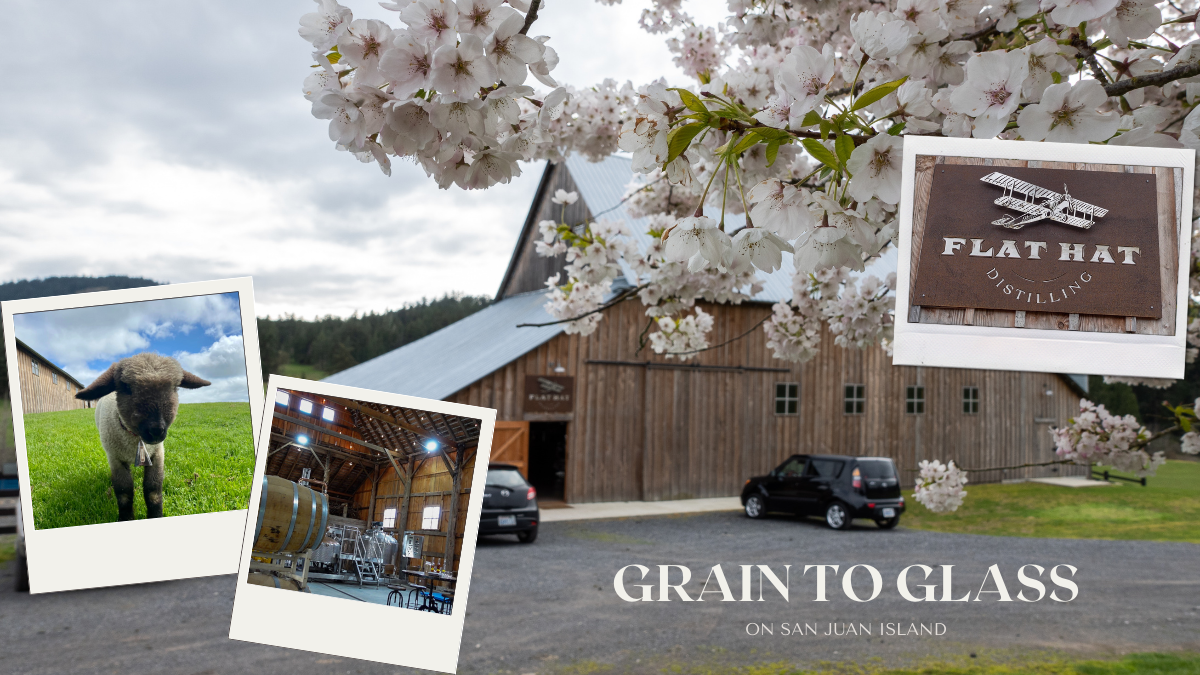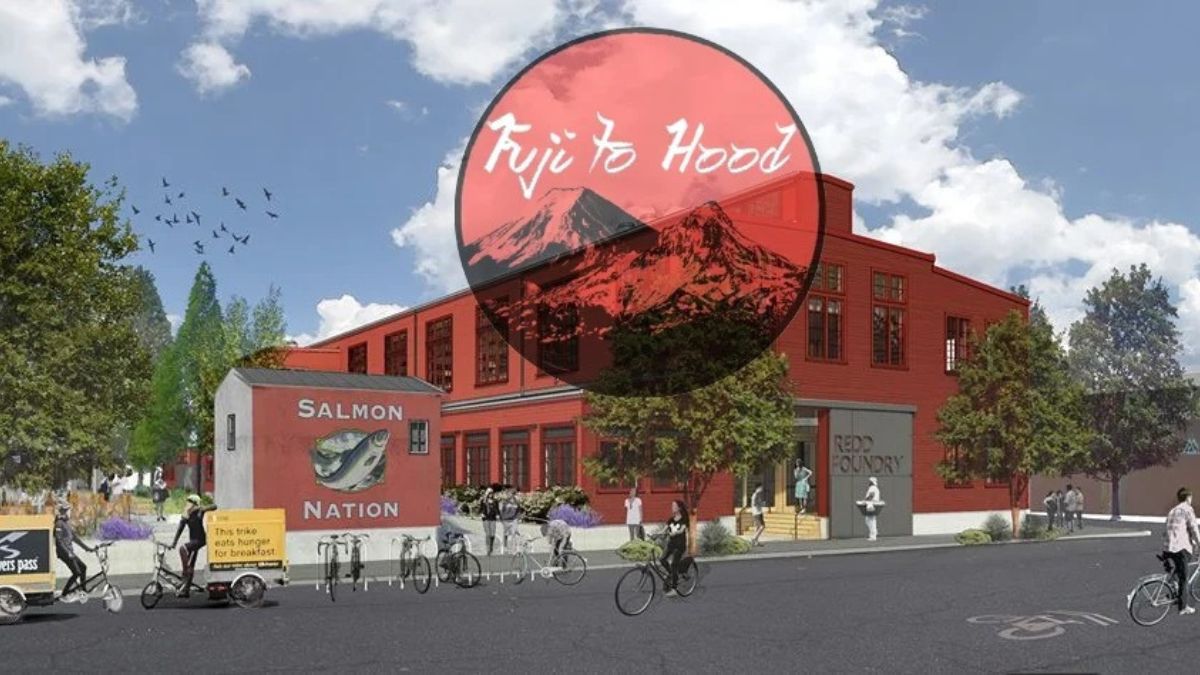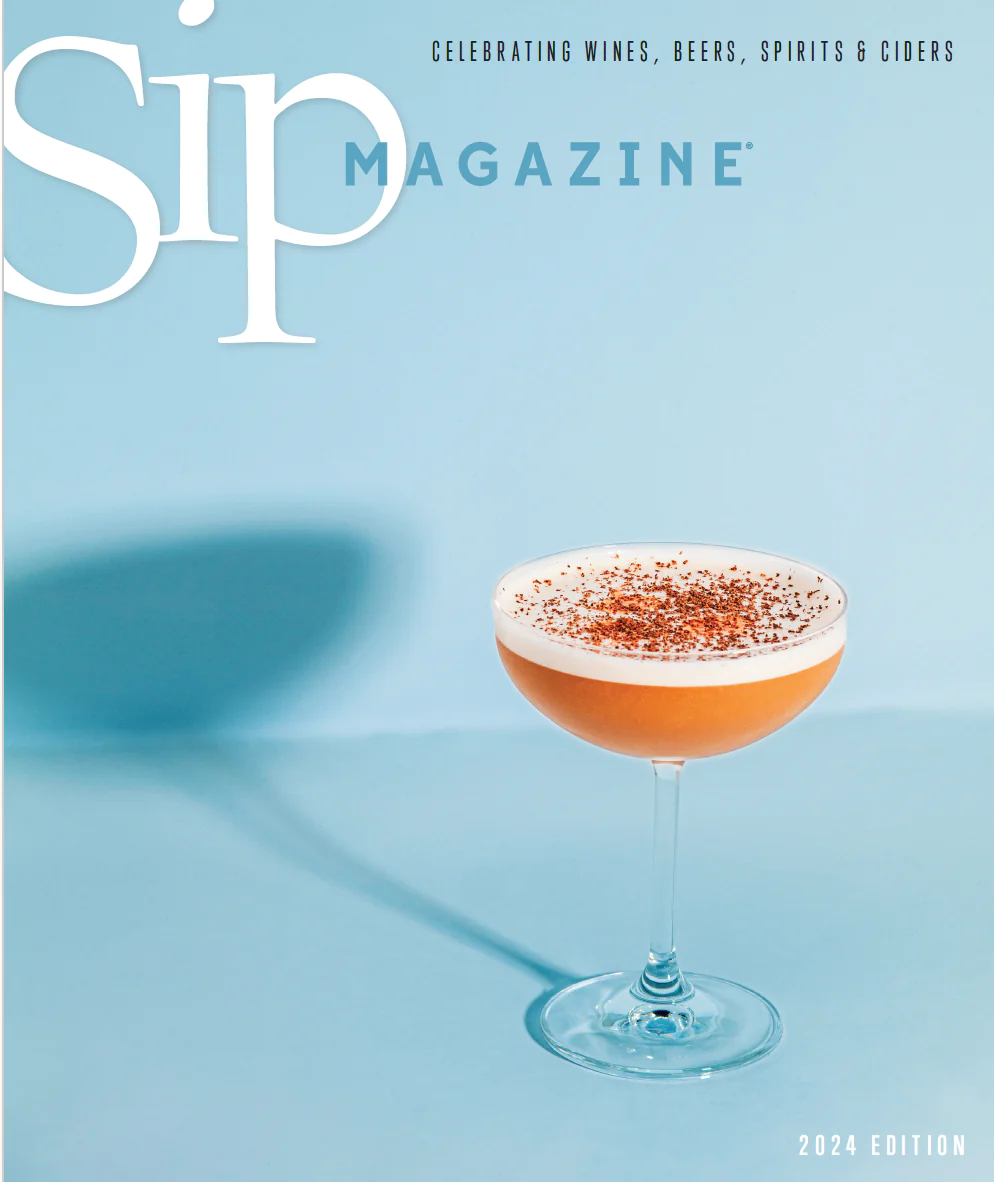Recently I took a trip up to the San Juan Islands, northwest of Seattle in the Salish Sea. Despite growing up in the Pacific Northwest, a journey to the islands has eluded me over the years. Finally, having the chance to go, I paid a visit to the Amaro Farm and Flat Hat Distillery in Friday Harbor.
I got to the farm on a cloudy, damp April morning. It’s the kind of farm that, just a day earlier, I found myself dangerously gawking at as we drove through the island backroads — a large white house, a historic barn, a grain silo, and sheep grazing in the pastoral countryside.
The old farm was purchased by Lance and Rami Amaro, who moved to San Juan Island about seven years ago. Lance was looking to return to his farmer roots and start his passion project, Flat Hat Distilling. When the chance to buy a historic farm came around, he and Rami jumped on the opportunity.
So what does one do when you buy a 130+ acre farm? You get to work.
***
As I stepped through the barn, I was greeted with wood beams, spools of wool, historical memorabilia, and other indications of a farm store just about ready for the public. Lance was eager to welcome me as well, with a big smile. Almost immediately, he starts telling the story of his passion, Flat Hat Distilling.
The term “flat hat” is used in the pilot world when a pilot would “fly low in an airplane” — or close enough to flatten a man’s hat.
“ ‘Crafted with a pilot’s precision’ — that’s definitely our motto here,” Lance says.
This is a natural segue into his background. Lance was a former farmer turned Army Ranger turned pilot turned builder turned distiller. He’s the kind of man who decides to pick up a book literally titled “How to Build a House“ from the local library and gets to work. He’s always tinkering, endlessly working to serve his perfectionism.
As we talk underneath the restored historic barn, the conversation turns to the farm.
Lance and Rami bought this farm from the Lawson family, an institution on San Juan Island since 1859 when Peter Lawson arrived after leaving his native Denmark.
Farming is hard enough, but what about restoring that 100-year-old farm? Let’s just say hard enough to scare the most ardent hipster homesteaders that fled cities during a pandemic.
As students of history, the Amaros did the restoration right; rather than tear down the house and barn, they took the more arduous road of restoring the property, wood beam by wood beam, incorporating as much of the old Lawson Farm as possible.
“The locals love it because it’s so historic — it would have been 10 times cheaper to bulldoze it down — they love that I didn’t,” says Lance.
The restoration went beyond the structures, restoring the land, picking up accumulated trash, and turning it into a functioning farm once again.
But the work doesn’t end with the physical restoration. There are also challenges to operating a farm on an island, where resources (especially labor) are tough to find, and restrictions are put in place to protect the natural resources.
***
In some ways, the farm is a means to an end for Flat Hat Distilling. Lance’s father and grandfather were distillers, and his fondness for spirits only grew during his pilot days. To him, the spirits represent much more than a nice buzz, but rather intimate conversations with his crew.
“You always had a three-day layover somewhere — or a four-day if it was an international trip — so your crew became your family,” Lance says. “Wherever we were in the world, we’d just drink really fine stuff. It was the kind of conversations that those spirits cultivated.”
These types of conversations led to a deep appreciation for spirits. As such, the idea for Flat Hat Distilling began to percolate in his head.
But in Lance’s dream, you can’t separate the farm from the distillery, or distillery from the farm.
“I want people to be able to walk out in the hazelnut orchard and come in here and buy a bottle of hazelnut vodka,” Lance says, looking out of the barn windows onto his property.
Some distilleries and breweries have used the term “grain to the glass” before. But few microdistilleries have had the ambition or resources to take that meaning quite as literal as Lance Amaro.
Ambitious, no doubt, but the San Juan Islands were once the bread and fruit basket of the Pacific Northwest, supplying Seattle until Eastern Washington’s agriculture boomed.
As we talk, he shows me around the soon-to-be Flat Hat Distillery.
Proudly displayed beneath the vaulted barn ceiling is a Specific Mechanical Systems still from nearby Sydney, Canada. Unfortunately, COVID-19 restrictions and supply chain issues delayed the arrival of the still until not too long ago. Off to the side are some French Oak barrels from San Juan Vineyard. They’ll be used for aging cherry brandy.
We also talk about his grand plan for the farm and distillery. Of the approximately 80 farmable acres of his property, he intends to farm wheat, barley, chestnuts, apples and cherries — all quite valuable to a budding distiller. In fact, Amaro Distillery plans to use all their harvests to create a slew of products starting with vodka and whiskey. Plans for brandy and maybe even the eponymous amaro are on the horizon as well, but a little farther off.
And like everything else on the farm, Lance isn’t taking any shortcuts when it comes to the distillery. Typically, young distilleries will buy neutral grain spirits from other distilleries, sometimes whiskey, and slap their own label on them. This isn’t cheating, but often a necessary shortcut to earning some revenue when starting a distillery.
But that isn’t the goal of Flat Hat Distilling; they want to take their whiskey from grain to glass.
Practically speaking, though, there is still a ways to go before the distillery is fully functional. There are some permitting logistics left to be sorted, but the goal is for Flat Hat to be up and running this coming Fall 2022, though that timeline could easily change. Once open, they’ll start selling on-premises while focusing on the experience visitors can have at the farm and distillery. They’ll gradually expand distribution to local grocers and restaurants on San Juan Island and eventually throughout Washington state and beyond.
In the meantime, the Amaro Farm and store is open to the public, where you can tour the barn and pet the world’s most adorable sheep.
***
To Lance and Rami, this farm and distillery are about something more.
“When you get to my age, it’s about leaving something behind — it’s about leaving a legacy,” he says.
Legacy aside, they could turn this property into a subdivision and sail off into a warm sunset. And you can tell, some days the idea is tempting. But leaving a legacy was a common refrain during my time with Lance and Rami — almost as if to convince themselves this project is indeed worth it.
And leave a legacy they just might. The Amaros have four kids, including a daughter learning the distillery trade.
***
The following morning I got an ATV tour of Amaro farm, taking me to the top of nearby Mt. Grant. On a clear day, you would see Mt. Baker, Mt. Rainier, the Olympic Mountains, and the Salish Sea — you could see for miles. But even on a not-so-clear day, it was beautiful with clouds rolling over the pastoral dream of the Amaro Farm.
I ask Lance if he ever stops to take a few breaths and appreciate the beauty. “Of course not, I’m always working,” he says with a coy smile.
He takes me to a spot on his property where he plans to build a house for him and Rami to retire. It’s a spot nestled between trees, perched above the farm, ready to survey the work done on the farm. Only here does he admit that, just occasionally, he’ll watch the herd of sheep ebb and flow across the property.
A few minutes later, on our way back to the barn, he stops to pick up some plastic trash off the side of the road.






